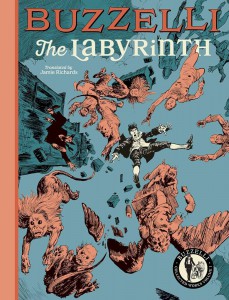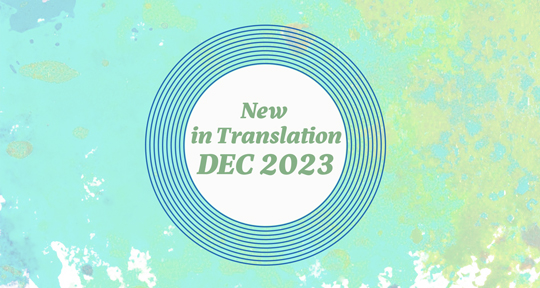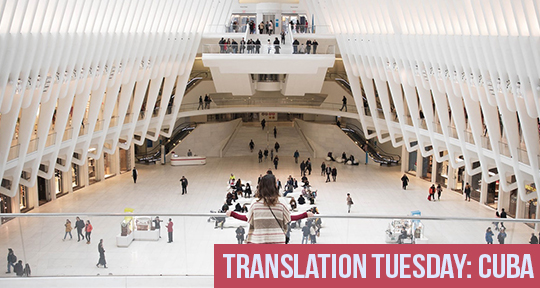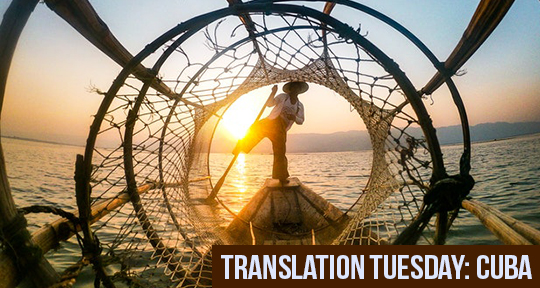In our final round-up of the year, we’re presenting a selection of titles that capture the human condition with various, masterful depictions and incisive intelligence. From Italy, the first volume of artist and writer Guido Buzzelli’s collected works present scrupulous and unwavering critiques of society; from Hungary, the master poet Szilárd Borbély writes the life of Kafka in relation to his father’s; from Cuba, a stunning bilingual collection from Oneyda González explores the surreal nature of the mirror.

Buzzelli Collected Works Vol.1: The Labyrinth by Guido Buzzelli, translated from the Italian by Jamie Richards, Floating World Comics, 2023
Review by Catherine Xin Xin Yu, Assistant Director of Outreach
What happens if, at the end of a normal workday, a sudden blast razes the world to the ground and you become one of the few survivors? Or if, waking up on an ordinary morning, you find your head and limbs dissociating from your torso and taking off on their own? Setting the scene with these Kafkaesque premises, Italian comic master Guido Buzzelli explores the monstrosity and power of dystopian societies in his graphic novellas, The Labyrinth and Zil Zelub, with a compelling visual language that is dense yet dynamic.
Buzzelli stands apart from his peers in every way—style, form, and theme. Born into a family of artists and trained in figure drawing, he is lauded as both “the Michelangelo of monsters” for his naturalism, and “the Goya of comics” for his chimeric blend of the real and the fantastical (as pictured below). He was also one of the first Italian comic artists to tackle complex literary subjects in uncommissioned, standalone works, counter-current to the Italian comics industry of the 1960–70s that pumped out commercial series with fixed characters and simplistic plots. As a self-proclaimed “man in doubt,” Buzzelli also rebelled against the progressivism of 1960s Italy, satirising the hypocrisy of political discourse and the violence of utopian mirages while alluding to the political upheaval at the time, from terrorist bombings to murky electoral campaigns. READ MORE…



